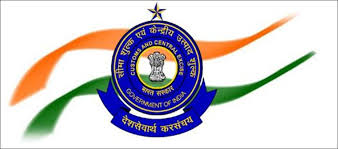
Given the lukewarm response to the safe harbour mechanism for transfer pricing, Central Board of Direct Taxes (CBDT) on Thursday cut the operating profit margin for information technology-enabled services, knowledge process outsourcing services (KPOs) and research and development (R&D) related to software and generic pharmaceutical drugs companies.
The new rules will apply to transactions of up to Rs 200 crore. Safe harbour rules, a dispute-avoidance mechanism, are defined as circumstances under which the income-tax authorities accept the transfer pricing declared by the assessee. The rule provides the minimum operating profit margin in relation to operating expenses that a taxpayer is expected to earn for certain categories of international transactions. The same is acceptable to the income tax authorities as arm’s length price (ALP). The rules are applicable for transactions between group companies based in different countries so that a fair price or ALP is arrived at by the tax authorities. The rules have come into effect from April 1 this year and will continue to remain in force for two successive years up to assessment year 2019-2020, the board said in a statement
For software development services, safe harbour margins have been reduced to a peak rate of 18% from 22% in the previous regime. Similarly, for KPOs, a graded structure of three different rates of 24%, 21% and 18% has been provided, based on employee cost to operating cost ratio, replacing the single rate of 25% earlier. For the third category of R&D services, the margins have been reduced to 24% from 30% and 29%, respectively, earlier. “The lukewarm response to the earlier safe habour scheme was on account of the high rates. Thus, taxpayers opted for unilateral APA process instead. The revised scheme has been designed to attract small to medium business, especially in the IT/ITeS segment, so as to give them a viable alternative to APA regime, which is both time consuming and expensive. The rates for IT/ITeS segment are more or less in line with the APAs being settled and hence the safe harbour scheme, this time, should get a positive response,” Arun Chhabra, director, Grant Thornton Advisory, said.
Assessees eligible under the present safe harbour regime up to AY 2017-18 shall also have the right to choose the safe harbour option most beneficial to them, the board said. It added that a new category of transactions being “Receipt of Low Value-Adding Intra-Group Services” has been introduced. “The revised safe harbour rules are a welcome step towards making safe harbour a viable alternate dispute resolution mechanism. Key highlights are: Reduction of margins for service units, introduction of safe harbour rate for low-valued services (in line with BEPS recommendation) and well-thought scheme for knowledge process outsourcing companies. Overall, it’s a welcome step towards strengthening the safe harbour option for small and mid size companies,” Kunj Vaidya, leader transfer pricing, Price Waterhouse & Co, said.





